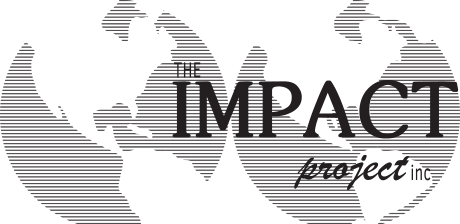

Project Life
Project LIFE is a program operated by The IMPACT Project, Inc., a private Children and Youth agency licensed by the Pennsylvania Department of Public Welfare. The acronym of LIFE stands for Learning, Information, Finances, and Education. The agency provides services for youth of all ages; with a primary focus on the youth ages 16 to 21. The referring agency will be provided with monthly reports that include behavioral assessments, therapeutic progress, treatment plans, a transition plan as well as discharge summaries.
Project LIFE was established by IMPACT to fulfill a recognized need for helping older youth work toward independent living. Teenagers do not benefit from the more rigorously structured environments of larger group homes if they are close to being released from the child welfare system. The average length of the program is designed to be six to nine months, but can vary greatly depending on the achievement of specific objectives as well as transition plan goals .
Project LIFE provides a program to meet the needs of those adjudicated dependent or delinquent youth who do not have home as a viable placement alternative. This program is designed specifically for older youth who require assistance from IMPACT staff in promoting or removing barriers to employment. Great emphasis is placed on these youth securing employment and developing skills, which will enable them to live independently after leaving the Project LIFE program.
The Project LIFE program utilizes a highly structured, specialized foster home, designed to help youth learn the necessary living skills and responsible thinking associated with independent living. The specialized foster care model employed, utilizes both confrontive and supportive principles. Project LIFE stresses behavioral responsibility; personal growth and awareness; continuing basic academic education; vocational exploration and employment; and the learning of the necessary life skills. Only youth that demonstrate mastery of the greater proportion of these skills will be considered eligible for successful release from the Project LIFE program.
Criteria for Acceptance
Project LIFE is designed to service those youth of either gender whose age is sixteen and older and whose I.Q is above 70. Those youth with lower I.Q.’s may be accepted with the understanding that a concurrent and ancillary referral will be made to the local office of Vocational Rehabilitation. The more limited youth may need other adult services at the time of release and we may be unable to get them fully prepared for total independence. All referrals are closely scrutinized for background information, educational status, psychological profile, and mental status. We cannot accept those youths unwilling to comply with programmatic requirements.
Philosophy/Purpose/Objectives
It is the philosophy of Project LIFE that adolescence is a developmental period wherein certain life skills must be acquired, developed, tested, and applied to real life situations. It is essential that youth be prepared educationally, financially, knowledgeably, and with the proper mental framework in order to succeed independently. The youth needs to learn to more effectively communicate and interact with others, as well as to learn self-reliance on their own problem-solving abilities. The acquisition of these skills will enable an adolescent to successfully and responsibly assume adulthood. Another key factor, instrumental in a successful adjustment from the Project LIFE program to independent living, is for qualified staff and well-trained foster parents to provide understanding, support supervision, and structure. It must be asserted that this is a form of specialized foster care.
Employment and Education
Preparation for independent living involves entering the job market in order to understand how to work toward becoming financially self-sufficient. Additionally, entering the job market will allow us to assess a youth’s work ethic and habits. Depending on individual situations, youth may choose to search for full-time or part-time employment.
Those youth who want to complete their high school educations would generally hold part-time jobs while attending school on a full-time basis. Those who work full-time are encouraged to participate in GED preparatory classes if they have not completed their high school education or previously qualified for the GED. Eligible youth are encouraged to participate in county or state job training programs when and where applicable.
General Program
Project LIFE homes are staffed by highly trained foster parents who will provide the individual youth with guidance and support. A Case Manager will be assigned to each home and child. Initially, at least weekly contacts will be maintained with both youth and family. Only youth that demonstrate mastery of the greater proportion of these skills will be considered eligible for successful release from the Project LIFE program. Workbooks designed to teach independent living skills to youth are an integral part of The Project LIFE program. IMPACT employs twenty one (21) workbooks designed to help the youth toward competence in the following areas:
1. Career Interest Inventory
2. Employment
3. Transportation
4. Money Management
5. Housing
6. Home Management
7. Leisure Activities
8. Community Resources
9. Relating to Others
10.. Basic education: Insurance, Social Etiquette, Problem Solving Skills, etc…
11. Sex Education
12. Cooking Skills
The completion of workbooks will be an integral part of the programmatic system as well as requirements necessary to complete levels.
Levels System
All youth are required to complete a seven phase level system. During the first level, the youth are required to learn their way around a new city/town, learn all the rules of the program, gain an understanding of the level and programmatic systems, understand the familial roles and expectations of their foster family, and learn/demonstrate job seeking skills. After becoming familiar with the foster family and local community, the youth are expected to begin their job search. Interviewing skills, job application procedures, and job search techniques are taught. The youth are then encouraged to search for potential jobs themselves. Copies of submitted applications and a general list is kept in order to track and verify progress on this front. In addition to the formal workbook content which targets job search tips and information, IMPACT staff may also assist youth in the actual job search process by providing transportation when possible.
Once the youth have obtained jobs and deposited their first paycheck into a joint interest bearing or custodial savings account, they are then eligible for levels system promotions. Levels II through VI are each designed to last approximately one month. Contingent upon the youth’s adjustment as assessed by our programmatic system and level of trust they have earned, they are rewarded with levels promotions. Each level affords greater freedom, finances, and responsibility, which eventually lead to independence. Level VII is a transition phase whereby a youth has successfully completed the program and is finalizing all arrangements for independence. This phase can take anywhere from one day to a few months, at the discretion of the referring agency.
Restitution Repayment
There is a built-in restitution plan in the Project LIFE program. The youth are required to deposit the majority of their paychecks into a joint interest bearing or custodial savings account, which prevents them from having ready access to
their monies. We keep a signed withdrawal form and if the youth runs away, we obtain their monies and forward the entire amount to the juvenile probation department. Additionally, 30% of every paycheck is
paid toward restitution by the youth. If the probation department requires more money to be assigned to restitution, we ask that they specify the amount.
Drug and Alcohol Services
Often there are times when drug and alcohol counseling necessitates the use of an outpatient program. When those situations are determined necessary, we will make all the necessary arrangements to see that a youth receives the necessary services. We also use the AA/NA programs within the community. Furthermore, IMPACT uses random urinalysis testing to monitor drug and alcohol usage.

"There are two primary choices in life: to accept conditions as they exist, or accept the responsibility for changing them."

